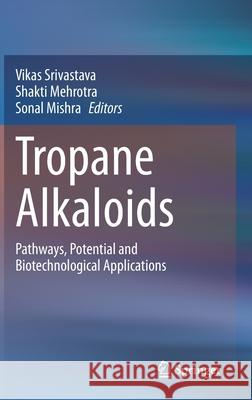Tropane Alkaloids: Pathways, Potential and Biotechnological Applications » książka
topmenu
Tropane Alkaloids: Pathways, Potential and Biotechnological Applications
ISBN-13: 9789813345348 / Angielski / Twarda / 2021 / 172 str.
Kategorie BISAC:
Wydawca:
Springer
Język:
Angielski
ISBN-13:
9789813345348
Rok wydania:
2021
Wydanie:
2021
Ilość stron:
172
Waga:
0.44 kg
Wymiary:
23.39 x 15.6 x 1.27
Oprawa:
Twarda
Wolumenów:
01
Dodatkowe informacje:
Wydanie ilustrowane











